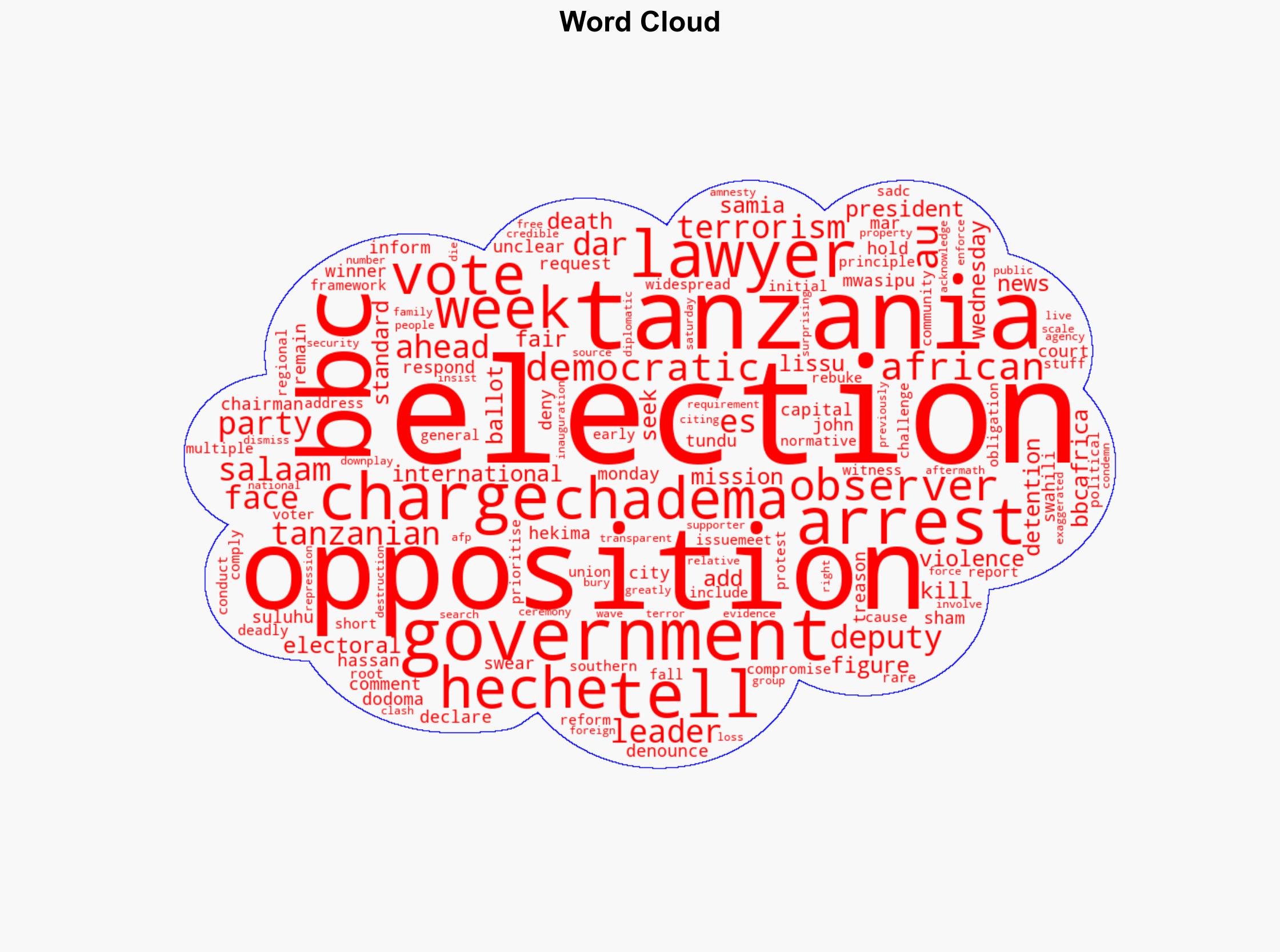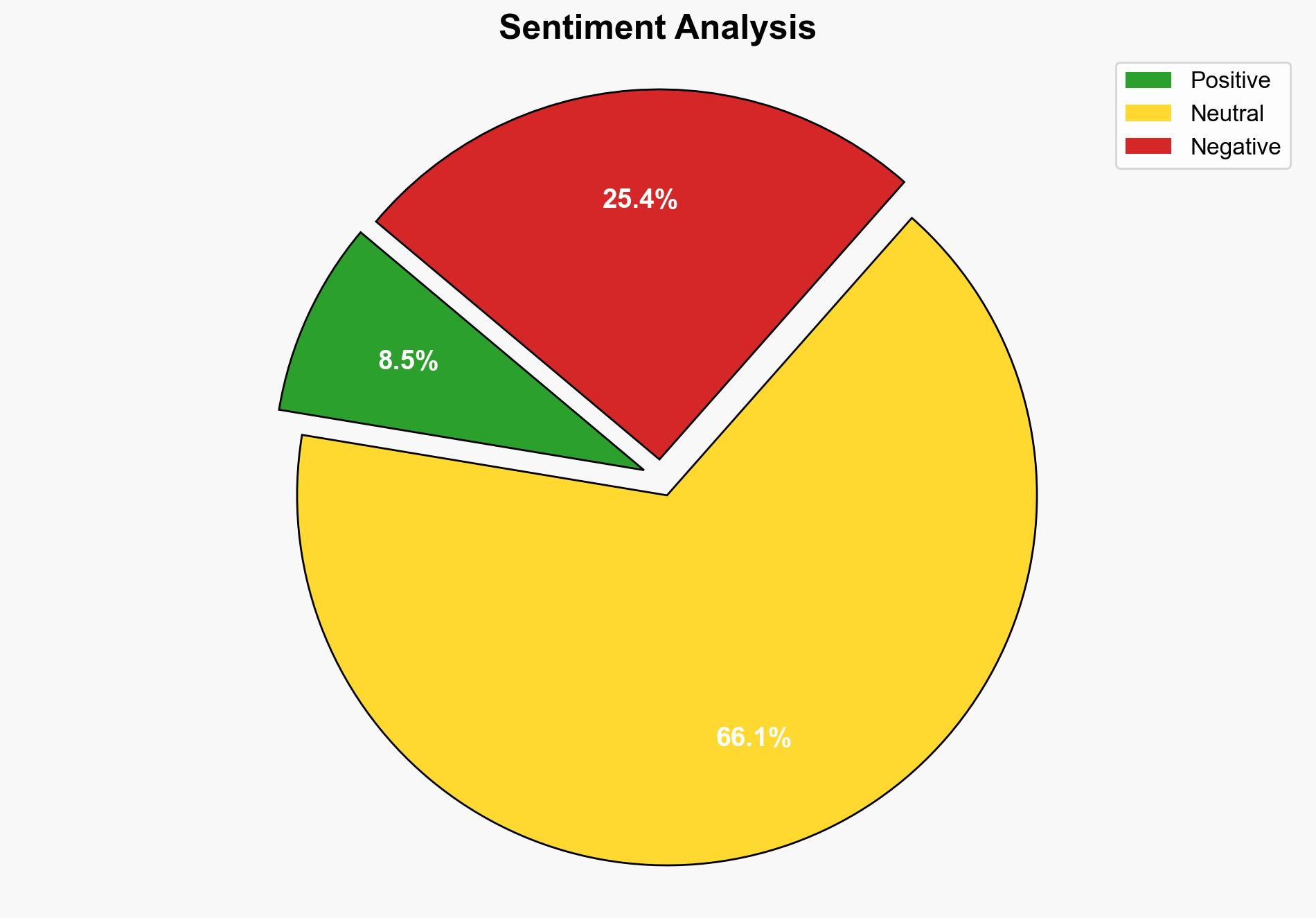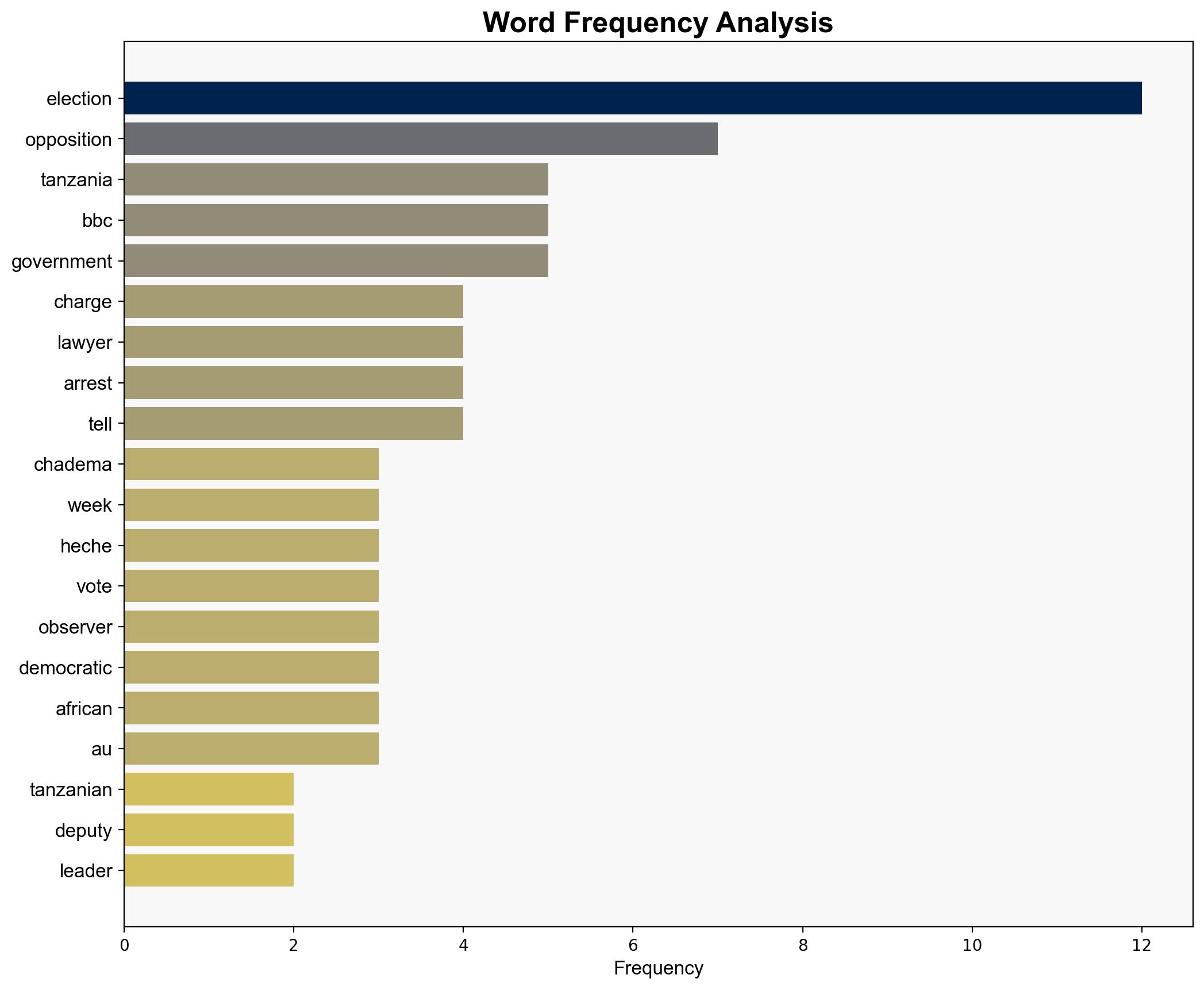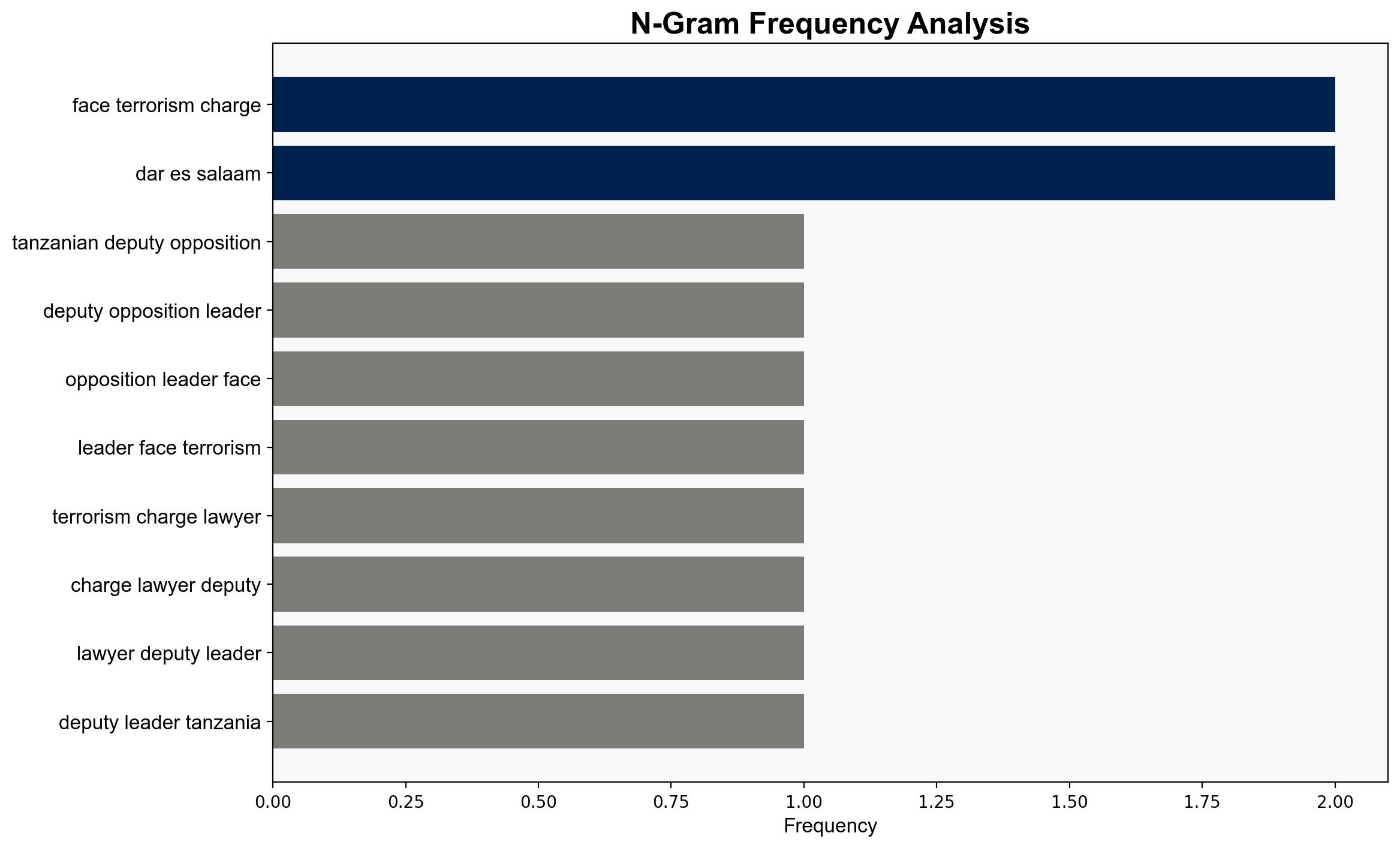Tanzanian deputy opposition leader facing terrorism charges – lawyer – BBC News
Published on: 2025-11-06
Intelligence Report: Tanzanian deputy opposition leader facing terrorism charges – lawyer – BBC News
1. BLUF (Bottom Line Up Front)
The most supported hypothesis is that the Tanzanian government is using legal mechanisms to suppress political opposition, particularly around election periods. This assessment is based on the timing of arrests, the nature of charges, and the historical context of political repression in Tanzania. Confidence level: Moderate. Recommended action: Monitor the situation for further developments and engage with international bodies to ensure transparency and adherence to democratic norms.
2. Competing Hypotheses
1. **Hypothesis A**: The charges against the deputy opposition leader are politically motivated, aimed at weakening the opposition and consolidating power following contested elections.
– **Supporting Evidence**: The timing of the arrest coincides with elections, historical patterns of political repression, and reports from observers about election irregularities.
– **Contradictory Evidence**: Lack of direct evidence linking the charges to political motivations.
2. **Hypothesis B**: The charges are legitimate and based on credible evidence of terrorism-related activities, independent of political considerations.
– **Supporting Evidence**: Government claims of fair and transparent elections and the absence of detailed information on the charges.
– **Contradictory Evidence**: Reports of election-related violence and repression, and international criticism of the electoral process.
3. Key Assumptions and Red Flags
– **Assumptions**: Hypothesis A assumes a pattern of political repression; Hypothesis B assumes the integrity of the judicial process.
– **Red Flags**: Lack of transparency in the charges, absence of government response to media inquiries, and reports of violence and suppression.
– **Blind Spots**: Limited access to independent verification of the charges and the broader political context.
4. Implications and Strategic Risks
– **Political Instability**: Continued suppression of opposition could lead to increased domestic unrest and international condemnation.
– **Geopolitical Risks**: Potential for regional instability if democratic norms are perceived to be eroding.
– **Economic Impact**: Investor confidence may be affected by perceptions of political instability and governance issues.
5. Recommendations and Outlook
- Engage with international organizations to advocate for transparency and fair judicial processes.
- Monitor developments for signs of escalation or resolution.
- Scenario Projections:
- Best Case: Charges are transparently resolved, leading to political reconciliation.
- Worst Case: Escalation of political violence and further international isolation.
- Most Likely: Continued tension with sporadic unrest and international scrutiny.
6. Key Individuals and Entities
– John Heche
– Hekima Mwasipu
– Tundu Lissu
– Luhaga Mpina
7. Thematic Tags
national security threats, political repression, electoral integrity, regional stability





